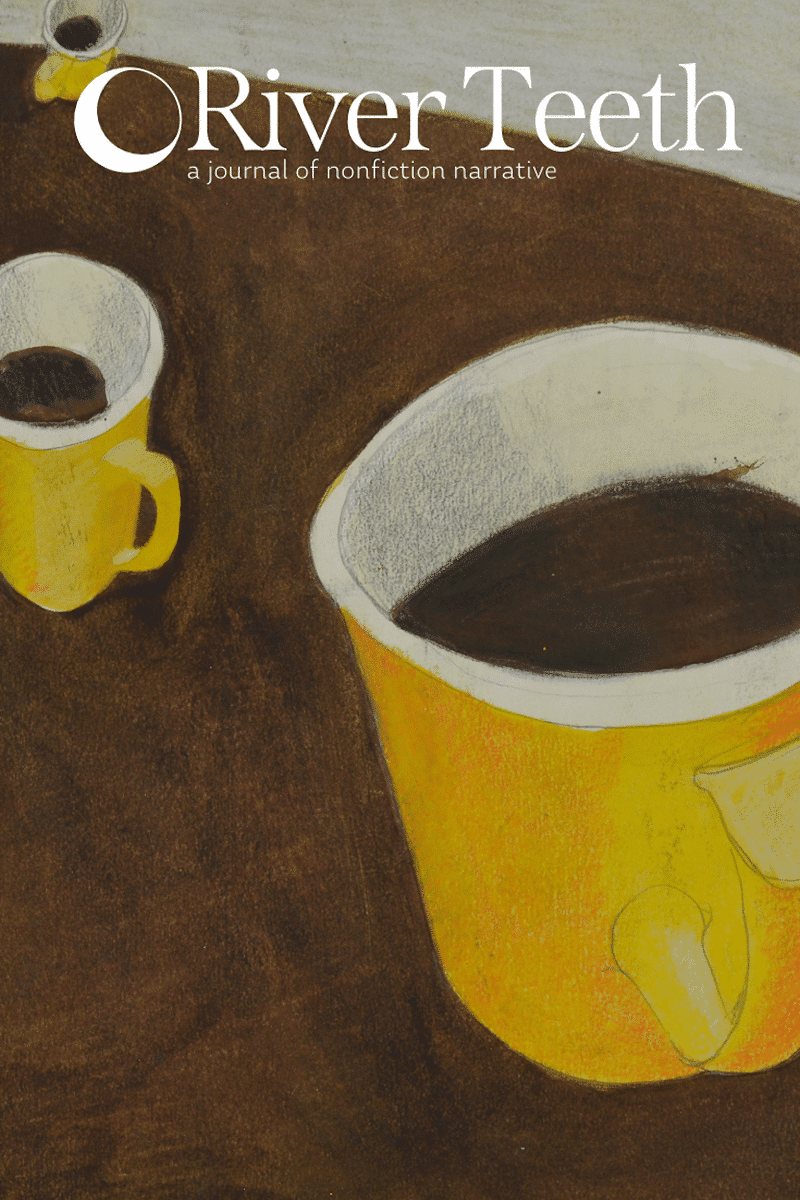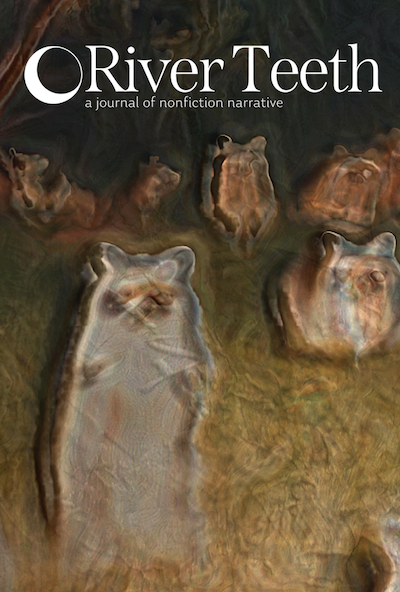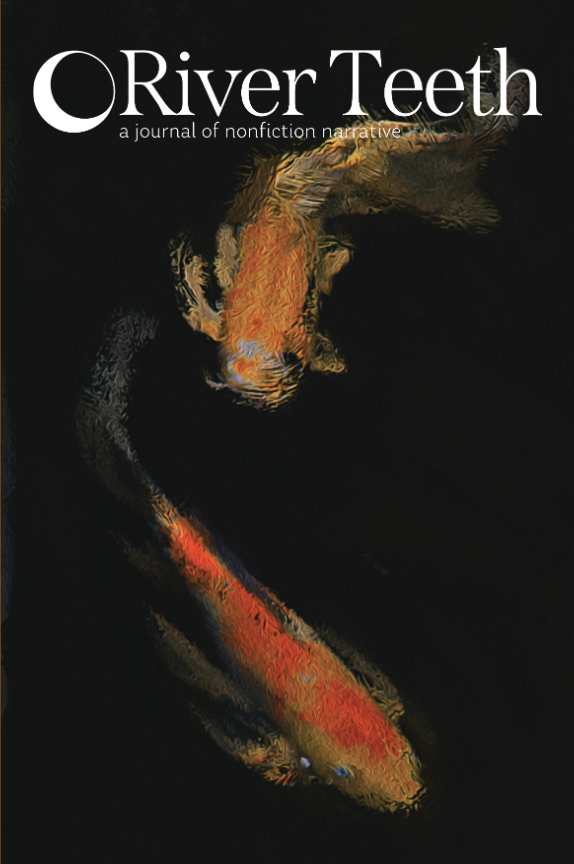By Steven Harvey
“The one thing I will not tamper with in this class,” I tell my students when I teach the art of the personal essay, “is your voice.” We can work on many elements of craft: thematic focus, strategies for beginnings and endings, pacing, dialogue, figurative devices, economy of expression, and many more, but voice remains untouchable. “You’ve spent a lifetime creating it,” I say, “and it is your gift. In many ways, it is you.” Robert Bly tells a wonderful story about the poet William Stafford. After listening to craft lectures at the Bread Loaf Writers’ Conference encouraging young writers to “find a voice” by “studying what the poetry establishment wanted at the moment,” Stafford objected fiercely. “I want to say that I don’t agree with anything that has been said here this week,” he announced when it was his turn. “You already have a voice and don’t need to find one.” He was not invited back.
Even though voice cannot be taught, it can, sadly, be damaged, and even destroyed, especially in a young writer. Following the “not-entirely-unspoken rule” of never writing about “dead pets or dead grandmothers,” Emma Bolden, who appears in this volume of River Teeth, was discouraged in workshops from writing about her grandmother. “Instead, I wrote poems that were poor copies of poets who themselves had died—cummings, Eliot, Dickinson, Sexton,” she explains. “It was how you learned, I was told: by listening to the voices that came before, not the voice that came from you.” The lesson sank in as a stultifying rebuke: “And, anyway, what did I have to say?” Fortunately, she realized over time that the only way to understand the events in her life is to “language them” in her own voice. In “Admit the Gravity,” she finally finds her own words for the forbidden subject of her grandmother whose death “ghosts” her and keeps her up at night.
Voice is the one quality of writing that the reader cannot begrudge the writer. You don’t tell Walt Whitman to tighten up or Wallace Stevens to dumb it down if you want to understand and appreciate their achievements. In matters of voice, we are asked to suspend disbelief. Fortunately in this issue of River Teeth we can accede to many singular voices. In “The Other Side of the River,” we listen to the pensive but increasingly anxious voice of Chelsea B. DesAutels as she decides to change her life while facing and undergoing surgery to remove a cancerous growth that developed during pregnancy. The language she finds for the ordeal readies her for change: “From having been made entirely porous, the countless instruments and hands crossing into my most private parts, I am turned inside out.” Corrie Williamson’s voice metaphorically matches the elusive idea of time with whatever she can find as she follows the “deep green artery” of the Rogue River: “Time, so often conjured as a river, a mineshaft, an oncoming train, feels to me like a golden bubble I’ve drifted in, an orb of light and rain in which days and routines roll and shine into one another.” Beth Ann Fennelly’s voice evolves from a grumble to a scream in an essay her agent insisted she write about her sister’s death: “a thing,” Fennelly admits in exasperation, “I’ve never successfully explained even once to myself.”
Reading no doubt influences our writerly voice, but the experience with language as we grow up largely shapes it because that is when we first see and feel the effect of words in action. We glimpse this process at work in “Best Pals” by Rachel Cline when she and her camping friends practice the art of being snarky after lights out by playing games such as “Body Comfort,” with silly names for ways to “pleasure each other” including “the tushy rub, the earlobe flutter, the big thump.” Such verbal play—and the snickers and cringes it induces—is the real-life laboratory in which we learn how words work. Unfortunately, the hidden reality behind such wordplay is not always benign, and over the course of Cline’s essay we learn that this seemingly innocent game of naming bodily pleasures is the symptom of unspoken evil suffered by her “best pal.”
Voice can be expansive and public such as the restless and adventurous language of Jesse Lee Kercheval in “Ten Things to Save from a Fire” about her willingness to embrace change: “I used to hate sports, then became obsessed with soccer. I used to hate opera, then got season tickets. I started as a fiction writer, then wrote a memoir, then became a poet. I learned Spanish at 50 and became a translator of Uruguayan poetry.” When she “took up the accordion,” her husband wondered if she had slipped on ice and “cracked” her head, but such recklessness is exhilarating: “The truth is I like the thrill I get when I start from the beginning. How frightening but fresh it makes the world seem.” At the other extreme, a writer’s voice can drift into the background and become the silent, resonant setting for the voice of another. In “Abyssinia,” Gary Finke lets his aging father do the talking as he drives him to old haunts: visiting a senile friend, gaping at empty lots where friends once lived, lobbing golf balls over the grave of his wife, and finally explaining—as only the voice of the old man can—the secret hidden in the pronunciation of the word “Abyssinia,” a name that takes on a double meaning by the essay’s end.
Sometimes, ironically, we hear ourselves best in the voices we borrow from others, entering into a revelatory dialogue. Asena McKeown found the father she never knew and the essay she needed to write by translating his love letters to her mother from Turkish into English, discovering that she and her dad had much in common, his death setting the stage for the woman she had become. Shannon Cram finds she has been fortified for her own life’s difficulties by the outrageous, but “brave,” fiction her grandfather used to tell about having the nipple on his breast shot off. “Took it clean off,” she used to say when she retold the story in his voice in the school yard, and of course she says it again in her own voice at the end of this essay allowing his words to guide her as she describes the “near-miss” markings of scars from a cancer operation “stitching” her own skin. Ekphrasis offers another kind of borrowing, the “blood-colored sunset wheels” of the painting “Bullfight” by Elaine de Kooning unleashing fury in the voice of Jenny Molberg as she struggles to find real language for the bloodless jargon phrase systemic oppression created and perpetuated by the patriarchy. “I am entitled to some sense of autonomy,” she asserts in a voice sparked by the painting, enlisting words like “boot” and “fist” to kick and punch through the abstraction of fathers and sons trapped in hatred. Assuming the guise of an unreliable narrator, Jim Daniels admits to telling lies to pump up the voice of his story: The teddy bear named Sparkles given to his son over many surgeries is not a bear but a dog, and his son’s vomit after one surgery did not land on and ruin Sparkles. “Why did I make that up?” Daniels wonders before landing on the truth inside the fibbing: “Our life was so exaggerated then, all capital letters and long strings of question marks.” Embellishing his voice, indulging the lying stranger within, recreated the “cartoon opera” that their lives had become.
The interior voices we rarely reveal in public burn like fire inside the internal combustion engine of the personal essay. I delight in watching Allison Field Bell evict “the drunk girl who lives inside my body,” the voice constructed out of excuses to drink: “Drunk girl weeps. Drunk girl begs. Drunk girl packs her things and carries her typewriter to the door.” I also hear the interior voice hidden subtly in the irony of Lynda Rushing writing about her childhood crush, her announcement of adolescent joy mildly rebuked in the retelling by the knowing tone, the hidden voice, of the writer as an adult: “It was finally going to happen—I would make myself talk to him and get to know him better. I would draw him out in my quiet way,” she writes coyly. “Maybe I could even dazzle him with my wit and surprise him with my profound understanding of life, years ahead of my chronological age.” “Quiet,” “dazzle,” “profound”—the author hears these words differently than does the girl she was, a girl clearly being set up for a fall. When she discovers the truth about her impossible love, the “air I was breathing became very heavy, like air saturated with seawater on a planet with too much gravity.”
The voice of recognition, that is what the writer creates while looking within this way, generously sharing the hard-won moment of discovery with us. Arriving at the funeral of a much-loved student from her past, L.C. Killingsworth hides the anger and sadness of her life behind a guarded persona. When asked what she has been up to by a former colleague before the service begins, she wonders what to say. “Most of my last decade has been spent expelling bodily fluids—vomit, milk, blood, my eternal soul—into a variety of receptacles, including human ones. Should I tell her about that?” Instead she says she has been doing nothing, “just, you know, working. Remotely.” When the service begins, though, emotion overwhelms her and she realizes in an epiphany that what she is feeling is what she has been missing. She recognizes it instantly, “the way a starving person knows the smell of food,” and suddenly understands why she has been furious and lost. As she and everyone else in the room focus together on the young person who has died, “all feeling the shape of the same hole in the world,” she experiences “the precise opposite of loneliness,” an emotion that “cracks her open.” Any embarrassment about crying uncontrollably in public is replaced with joy. “Joy that we are crying together, about the same thing.” It is a privilege as a reader to listen in as a voice makes such a discovery.
Magazines like River Teeth protect and promote these myriad voices giving us “the precise opposite of loneliness” twice a year in an increasingly lonely world, but I fear for such voices in the future. They do not do well in authoritarian societies run on fear like the one we are hurtling toward. In an interview of a Russian editor in exile, I recently read that Vladimir Putin, after shutting down the major news sources, started threatening the small, literary magazines in his country, a somber warning. At a protest near my hometown people declined to be photographed with their signs—with their own hand-printed words—for fear of losing their jobs. And who knows what AI will do to the distinctively human voice once it starts writing our books and ferreting out the authors and publishers of words we are no longer allowed to write? Worry about voice takes me back to William Stafford, who spent nearly every morning of his adult life listening to his. In the poem “A Ritual to Read to Each Other,” he makes an “appeal to a voice, to something shadowy, a remote region in all who talk” that keeps “the parade of our mutual life” from getting lost in the dark. He urged “that awake people be awake” to this voice emanating from some place far off inside themselves “because the darkness around us is deep.”
—Steven Harvey












